Here’s a reality check for anyone thinking about bringing this parrot home. Macaws are very cool, intelligent birds, which makes them alluring pets at first glance. However, many aspects of their biology and behavior conflict with the constraints of life in a home. The result is often a bird whose welfare is compromised and a pet companion that is overwhelmed. Below is a detailed list of reasons why macaws generally don’t make good pets, especially for someone unprepared for the challenge.
1. You Can’t Travel Easily
Having a macaw means rarely being able to take spontaneous trips.
- Finding a qualified bird sitter who understands the behavior of large parrots is difficult and expensive.
- Boarding can be stressful for the bird or simply not available.
- Even weekend getaways require detailed planning and backup care.
2. They Need a Huge Cage
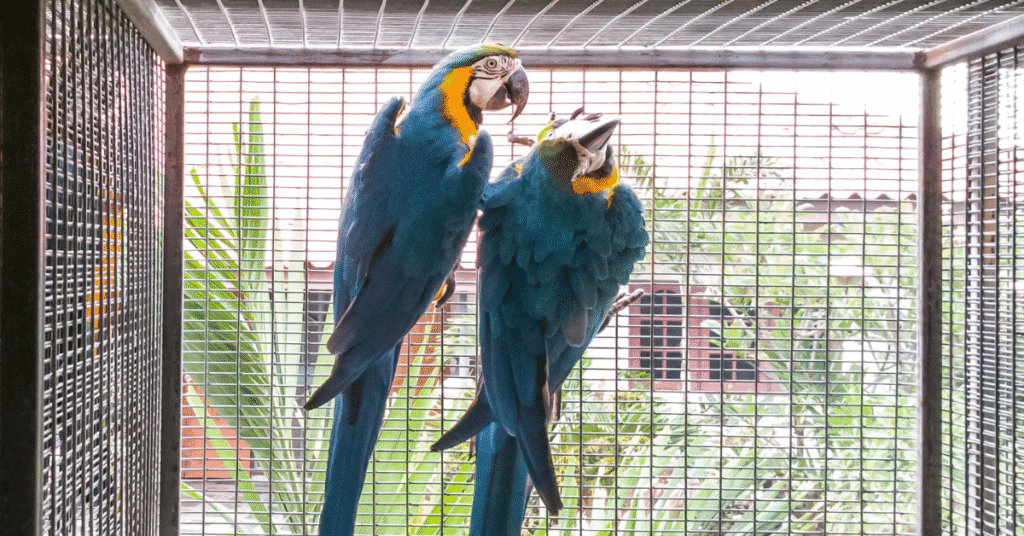
Macaws aren’t just “big parrots”, they’re massive (up to 40 inches long). Check out more on how the Hyacinth Macaw is the largest parrot.
- They require a custom, reinforced enclosure, not a standard birdcage.
- Their wingspan demands serious space for flight or exercise.
- Without enough room, they suffer mentally and physically.
3. They Mate for Life
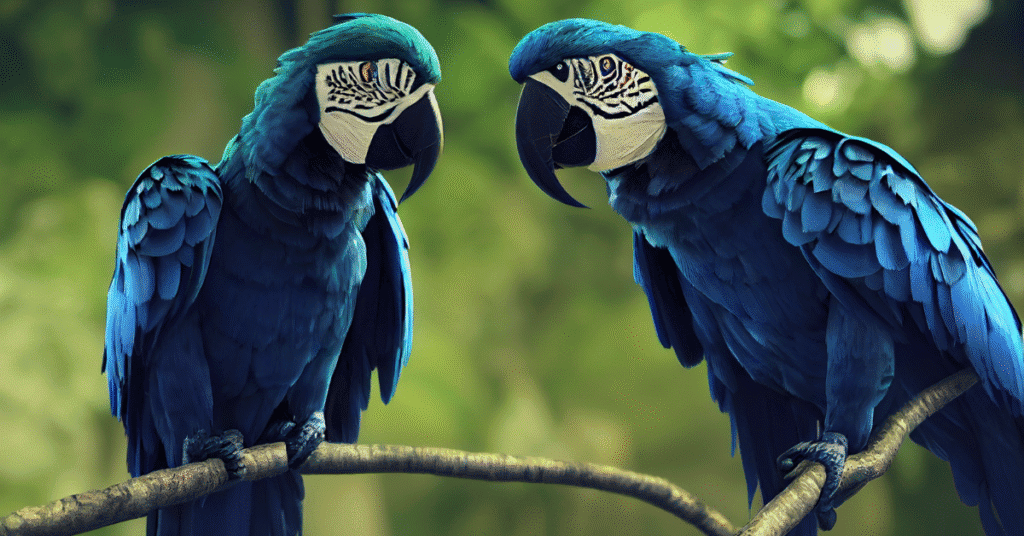
Macaws often bond deeply with one person or another bird.
- Rehoming disrupts that bond and leads to grief-like symptoms.
- Many become withdrawn, aggressive, or depressed when separated from their “mate.”
- This makes adoption or transfer especially hard on the bird.
4. They Live a Very Long Time
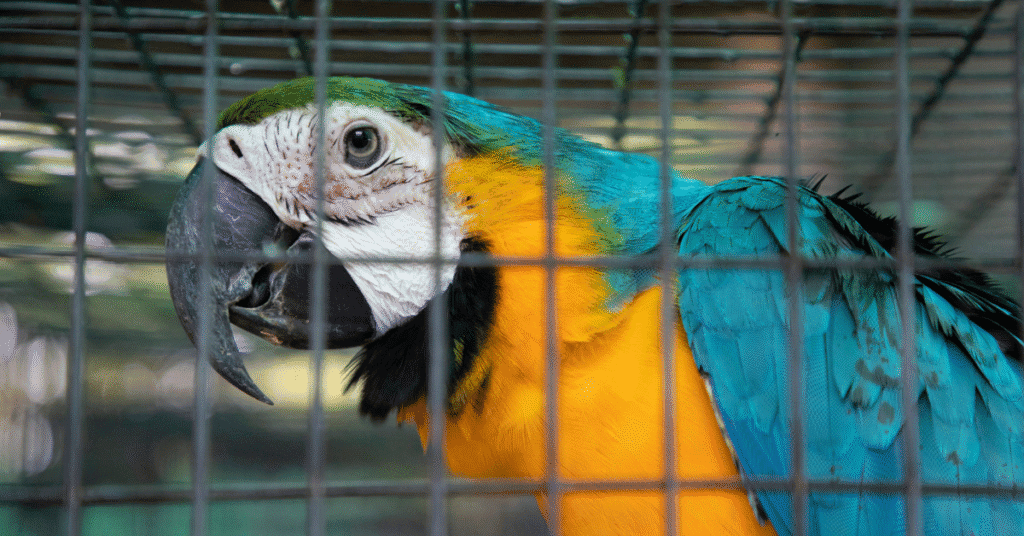
Macaws often live 35–50+ years in captivity.
- Many outlive their original owners.
- People rehome them when their lives change, such as through divorce, having children, illness, or aging.
- It’s not just a pet, it’s a decades-long responsibility.
5. They Are Loud and Destructive
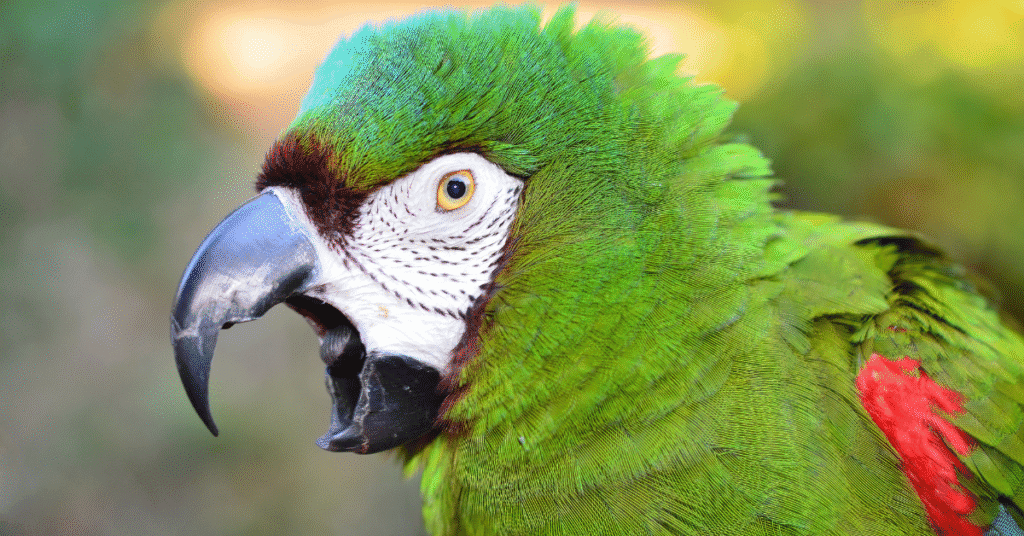
Macaws were built to be heard across forests.
- Their natural calls are piercing and frequent.
- They chew constantly—wood, wires, furniture, baseboards—anything they can reach.
- You can’t train them not to be loud; it’s an instinctual behavior.
6. They Have Complex Emotional and Social Needs
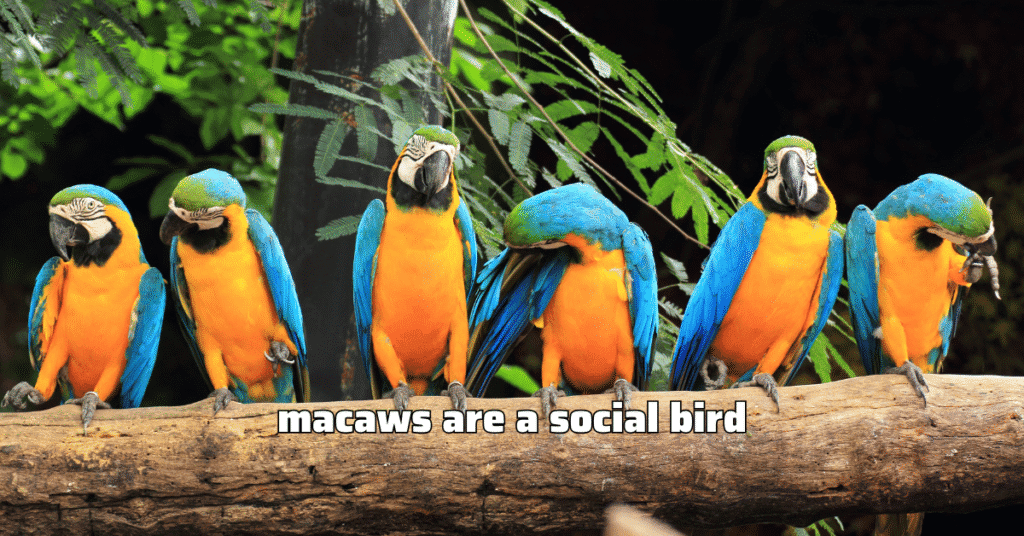
These are flock animals with high intelligence.
- Without social interaction and stimulation, they can develop neurotic behavior.
- Feather plucking, screaming, and aggression are common in under-stimulated macaws.
- They need 4–6 hours of daily interaction and freedom outside their cage.
7. They Are Expensive to Keep
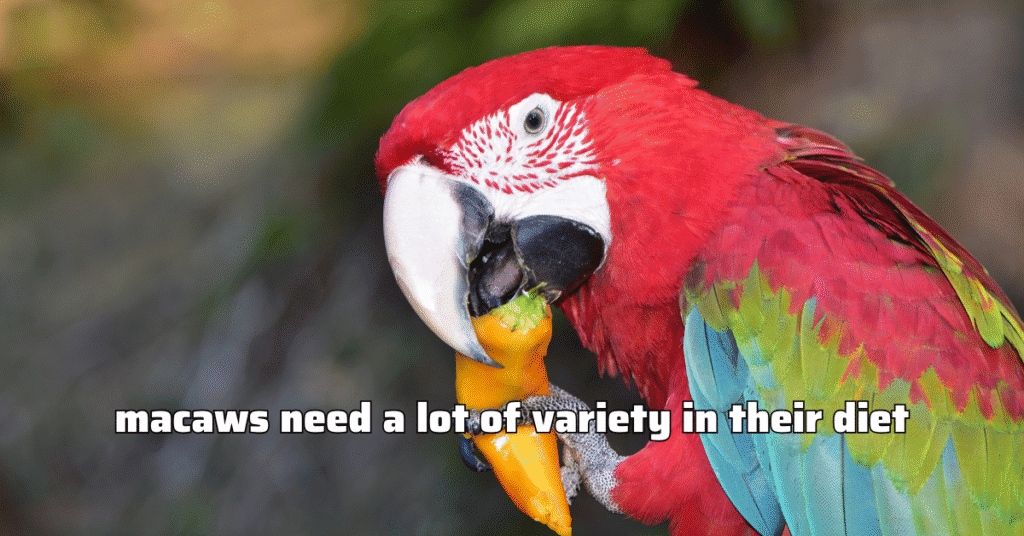
Macaws are one of the most costly pets you can own.
- The diet must include fresh vegetables, fruits, pellets, and specialty nuts. More on the Macaw diet here.
- They require regular avian vet visits, most vets can’t handle macaws.
- Toys, perches, air filters, and safe housing materials add up quickly.
8. They Are Commonly Rehomed
Too many living with Macaws realize too late that they are more work than expected.
- Sanctuaries and rescues are overwhelmed with surrendered birds.
- You can emotionally damage your birds by repeatedly rehoming them.
- A stable, lifelong home is rare, but essential for their well-being.